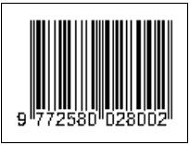ETIKA BERBAHASA DALAM MELAKUKAN LIVE STREAMING YOUTUBE
Downloads
Abstract: The ethics of language usage in YouTube live streaming has become an increasingly important topic as the platform grows in popularity as a medium for communication and entertainment. Live streaming facilitates direct interaction between content creators and viewers, often leading to uncontrolled language use by streamers. Ethical issues in language usage in this context can have negative impacts, such as the spread of hate speech and the creation of an unhealthy communication environment. Therefore, this paper aims to: (1) examine the language used by streamers MiawAug and Windah Basudara during YouTube live streams, (2) assess the impact of their language usage during live streaming, and (3) provide suggestions or recommendations for gaming streamers on YouTube.This study employs a qualitative research approach. Data collection techniques include indirect interviews conducted through Google Forms. The research subjects are active students from UPN Veteran Jawa Timur who are viewers of MiawAug and Windah Basudara’s YouTube live streams. The study period spans from August to October 2024.The results of the study reveal the following Language usage Windah Basudara often uses less polite expressions, such as "Anjir di kombo anjir muncul tiba-tiba cok" (used during surprising moments in games), while MiawAug tends to use more polite phrases like "Happy new year! Thank you everyone, happy new year!" (used during moments of victory). Impact of language usage: The positive impact of language usage by MiawAug and Windah Basudara during live streaming includes fostering a healthy and supportive community on YouTube. However, the negative impact includes potential harm to the community and a diminished viewing experience for audiences.Recommendations for gaming Streamers are encouraged to use proper and appropriate language to build a healthy community on YouTube.
Keywords: Language Ethics, live streaming YouTube, MiawAug, Windah Basudar

This work is licensed under a Creative Commons Attribution-NonCommercial-ShareAlike 4.0 International License.
1. Copyright of this journal is possession of Editorial Board and Journal Manager, by the knowledge of author, whilst the moral right of the publication belongs to the author.
2. Legal formal aspect of journal publication accessibility refers to Creative Commons Atribusi-Non Commercial-ShareAlike (CC BY-NC-SA),implies that publication can be used for non-commercial purposes in its original form.
3. Every publications (printed/electronic) are open access for educational purposes, research, and library. Other that the aims mentioned above, editorial board is not responsible for copyright violation.










